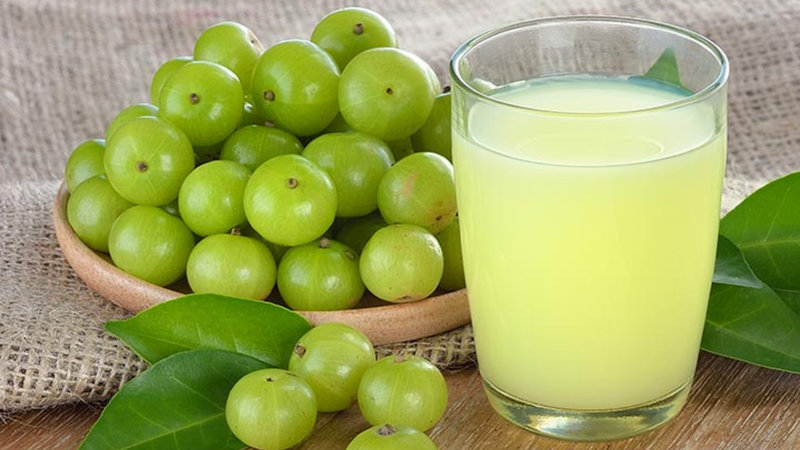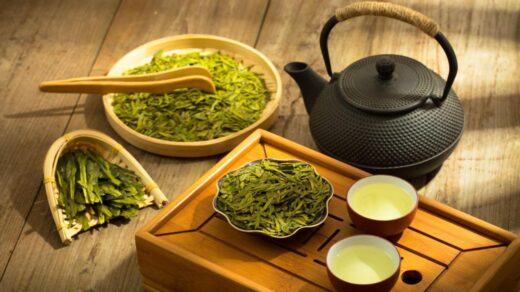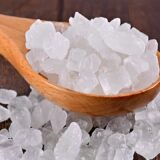Amla Juice Benefits – Medicinal Properties & Health Benefits
Amalaki, also known as Amla or Indian Gooseberry, is a grape-like fruit: rounded, the size of a plum, greenish-yellow, and with a somewhat sour flavor but with great nutritional properties for our health.
Amla has been talked about a lot in recent years. Although on many occasions we can believe that it is due to another trend, the truth is that this fruit. It is found all over India which grows from the Himalayas to Tamil Nadu.
It is a great source of vitamins, minerals, proteins, fibers, and where its high content of vitamin C stands out, practically the equivalent of two dozen oranges. The Amla or Amalaki is a tree (Phyllanthus Emblica), whose origin is found in the tropical and subtropical regions of Asia. It belongs to the family of the Phyllanthaceae. It has a robust trunk, medium-size and abundant branches.
Its flowers are greenish-yellow and its fruits are harvested by hand in the fall. Amalaki is very fibrous, with a sour, bitter, and astringent taste. In fact, in India, it is used customary, many like to soak in salty water before being consumed. In this way, the tannins that give it that sour taste are eliminated, softening its flavor.
There are many ways of consuming amla, it can be in the form of a jam, which is generally known as murabba (amla candy) in India. It is consumed for digestive and gastric problems after eating. the uses of Amla juice also have many health benefits. Besides this amla powder, it is used for jaundice, cough, cold, diarrhea, etc.
Amla Properties & General Benefits
- Amalaki is a powerful antioxidant and according to Ayurveda, one of the best medicines to prevent and treat aging.
- In Ayurveda amla have great importance, In fact, it is one of the plants with the highest concentration of vitamin “C” that. Today it is supported by Natural Standard, a traditional medicine website authorized by the WHO.
- It is one of the most powerful natural rejuvenators that we can have at our fingertips according to Ayurvedic medicine, especially for the skin, bones, blood, liver, and heart.
- According to the Ayurveda text, amla has properties that can calm the three doshas, especially Pitta.
- The Amalaki or Amla, acts on all the tissues of our body, being especially beneficial for cardiovascular health and for the excretory system. In addition to being a powerful rejuvenator, Indian Gooseberry is an excellent nourishing tonic, aphrodisiac, laxative, refrigerant, astringent, and hemostatic.
- It is also made up of numerous phytochemical amino acids such as ellagic acid, gallic acid, quercetin, and polyphenols, which make it an excellent detoxifier.
Thanks to all these properties, Amla is a powerful tool as a complementary treatment in the case of many diseases such as diabetes or certain cardiovascular diseases.
Amla: Active Ingredients & Medicinal Properties
Although Amla leaves contain interesting medicinal active ingredients, the vast majority of food supplements made from this plant are made from its fruits.
- Amalaki has been shown to have antioxidant, anti-inflammatory, antibacterial, medicinal properties against ulcers, and strengthens the immune system.
- In Ayurvedic medicine, this plant is used as a tonic both physically and mentally. It is used with the aim of renewing and strengthening the body, to improve digestion and strengthen the immune system.
Amalaki is one of the three ingredients in the Ayurvedic formula known as Triphala
- The Triphala is designed to revitalize the entire body, prevent disease, and slow aging and death. It is especially used in digestive disorders since it is a laxative and serves to purify and detoxify the body.
- In combination with other plants, it is also used to treat diseases such as diabetes, pancreatitis, atherosclerosis, heartburn, joint and bone problems, and even obesity,
- It is beneficial for treating ulcers and as a liver protector since it protects the liver from damage caused by toxins that reach it.
- Although there are still studies to be done, preliminary studies on Amalaki suggest that it may help reduce cholesterol and blood triglyceride levels.
Yes, it has been shown to be effective in diabetes as it significantly lowers blood glucose levels and triglycerides.
Indications of the Amalaki or Amla
The Amalaki is therefore indicated in the following cases:
- Anti-aging
- General weakness, fatigue
- Tissue deficiency
- Liver protector (weak liver/ spleen)
- Hepatitis
- Hemorrhages
- Hemorrhoids
- Anemia
- Gout
- Vertigo
- Gastritis
- Osteoporosis
- Constipation
- Premature gray hair
- Febrile states
- Mental disorders
- Palpitations
Benefits of Amla powder (churna), juice, or candy
- Heartburn: Being an acidic fruit, it can promote heartburn in people with sensitivity.
- Constipation: Although Amla can reduce constipation, due to its high fiber content and consumption in excess it can cause the opposite effect.
- Diabetes: In research, it has been seen that amla helps control blood sugar levels. However, diabetic people should consult their doctor before consuming it since it can interact with the prescribed medication canceling out the effects of certain medications.
- Blood pressure: Amalaki can lower blood pressure, so its consumption is not recommended for people with low blood pressure.
- Dry Scalp: Dry scalp contributes to hair loss. Amalaki can dry out the scalp, promoting hair loss, especially if consumed in excess.
- Dehydration: Due to its diuretic effects, excessive consumption of Amalaki can cause dehydration.
- Stomach upset: Although Amalaki promotes digestion, in excess it can cause diarrhea and other stomach upsets.
Amalaki Contraindications
Amalaki, like all plants, also has its adverse effects and can cause different problems, especially if we consume it in excess.
Due to its content in hepatotoxic hydrolyzable tannins, its therapeutic use without medical supervision is not recommended.
Amalaki Conclusions
As we have seen, Amalaki is one of the greatest sources of vitamin C that we can find. Vitamin C is widely known for its health benefits such as its ability to reduce inflammation, strengthen the immune system, and as an antioxidant.
Although there are no warnings or contraindications about Amalaki, if we are talking about a fruit it should be eaten with caution. It can cause stomach upset, irritation of the digestive tract, and a drop in blood pressure.
Note: In the case of its presentation in powder, tablets, or capsules, the content could be adulterated with other constituents. Be suspicious and do not buy Amla of dubious origin. Make sure you buy it with a certificate of origin and quality guarantee.
It is necessary to consult a professional medical consultation if you are a regular user of any of the amla products.

























